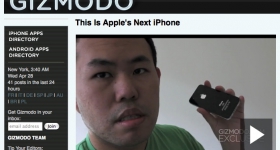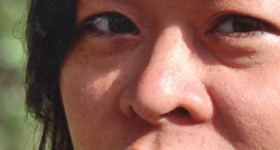With the controversy surrounding the summer releases of The Last Airbender and The Karate Kid, it's obvious that the fight for fair representation in Hollywood is a marathon, not a sprint. We might (or might not) have come a long way since the days of Mr. Miyagi, but in terms of raising awareness for the plight to normalize the Asian American experience, there is still an unpredictably long road ahead.
But what's heartening is that in this day and age (just how old do I sound using that phrase?), much like Asian American career paths, the traditional route isn't the only one anymore.
YouTube, with its constant barrage of everything from online rants to musical up-and-comers to cute puppies, is proving to be the latest (and fastest-growing) stage for an increasingly visible Asian American presence. In his column "Asian Pop" earlier this month, Jeff Yang wrote about the AsAm YouTube phenomenon that's taking place now, one click at a time.
Names like Kevin "KevJumba" Wu, David Choi and Christine "HappySlip" Gambito are now familiar via online communities for many reasons, but perhaps chief among them is simply that they've tapped into a medium that maximizes their audience, intentionally or not.
Asian Americans are drawn to the Internet, and to that sense of community, more so than other demographics -- whether via YouTube or other noticeably AsAm-crowded networks like Yelp -- and this penchant for online interaction is a huge factor in the medium's success. And, for these young media stars, this means that they've consequently landed themselves in what might have been previously hard-to-reach territory.
Gambito is being approached by networks after her Web series, in which she plays multiple family members, garnered more than 36 million viewers. Choi is now working on a debut album and serves as a songwriter-producer for Warner/Chappell Music. And Wu, who posts video musings about everyday things ("I Need Help With the Females" and "I Hate the SATs" among them) once held an online staring contest with Jessica Alba (the actress is a fan of Wu's videos) after Golden State Warriors point guard Baron Davis called him out in the YouTube chain challenge.
All this because, as Yang points out:
That groundedness defines this generation's new expectations of media. Hollywood was built around epic personalities, larger than life icons; but the next generation of content is rooted in authenticity and accessibility. The camera points both ways: Video creators expect their audiences to respond and participate, not just watch and shut up.
Even more recently, Kai Ryssdal of NPR's Marketplace interviewed USC Annenberg professor Josh Kun about the growing success of Asian Americans on YouTube, and why that success hasn't translated into a breakthrough in mainstream media, though fellow YouTube acts like Justin Bieber have been signed and groomed into megastars.
According to Kun:
Some people believe it's kind of lingering, old-school racism. Others believe that within U.S. pop culture the idea of Asian Americans as somehow not quite "American" still persists in many ways. And many others just talk about kind of more basic stereotypes -- that, in fact, mainstream U.S. culture is not used to seeing Asian American kids who aren't mathematicians or who aren't behind the scenes as DJs.
So is this the next springboard for pushing for fair Asian American media representation? It's no longer about waiting for wrongs to be set right; it's about taking actions (and the camera) into our own hands -- literally.









Comments